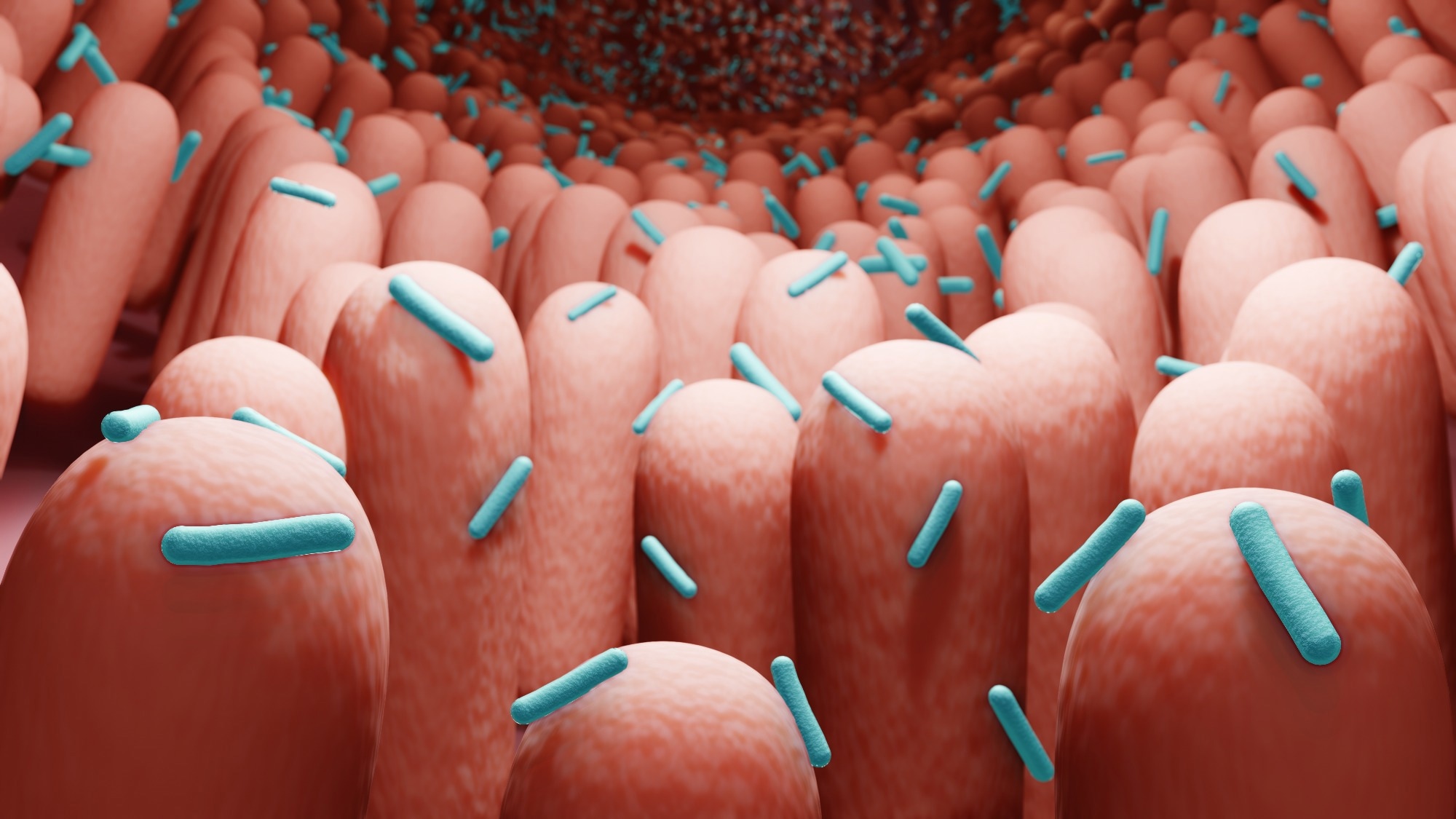The intestine microbiome performs an energetic position in sustaining a person’s well being. Alteration within the intestine microbial inhabitants (dysbiosis) can affect illness severity and impression long-term outcomes in adults contaminated with extreme acute respiratory syndrome coronavirus 2 (SARS-CoV-2). Owing to restricted pattern availability, the impression of the intestine microbiome in kids with COVID-19 has not been evaluated.

One of many causes for decrease pattern availability is that kids are at decrease danger of contracting SARS-CoV-2 in comparison with adults.
Lately, scientists have reviewed the obtainable proof on the intestine microbiome in kids with COVID-19 and printed it in Microorganisms.
Background
Most kids with COVID-19 expertise at the least one gastrointestinal (GI) an infection symptom, reminiscent of belly ache, vomiting, and diarrhea. All these signs are linked with modifications within the affected person’s intestine microbiome.
Not a lot information is obtainable on the prevalence of asymptomatic kids with COVID-19. Nonetheless, the stool evaluation of asymptomatic infants with COVID-19 revealed a lower in Enterocloster clostridioformis, Bifidobacterium bifidum, Akkermansia muciniphila, and Veillonella dispar. In adults, intestine microbiome dysbiosis has been correlated with increased ranges of inflammatory cytokines in sufferers severely contaminated with SARS-CoV-2.
In several gestational levels of being pregnant, the intestine microbiome promotes varied inflammatory responses. A number of prenatal and adolescence elements, which embrace SARS-CoV-2 an infection throughout being pregnant, affect the event of the intestine microbiome in infants. Breast milk additionally performs an vital position in infants’ improvement of a wholesome intestine microbiome.
As the danger of transmission of SARS-CoV-2 from mom to toddler by breast milk is low, it has been really helpful that infants ought to proceed to obtain breast milk from moms with SARS-CoV-2 an infection, following the protection tips.
Though most kids stay asymptomatic or expertise delicate signs after SARS-CoV-2 an infection, some develop multisystem inflammatory syndrome in kids (MIS-C), which is a extreme situation. Since GI signs are outstanding MIS-C signs, it has been conjectured that the intestine microbiome would possibly act as native and systematic inflammatory modulators by way of interactions with SARS-CoV-2.
A big distinction in beta variety was discovered between MIS-C and wholesome kids. Regardless that not a lot analysis is obtainable on the position of the intestine microbiota within the pathogenesis of MIS-C, a lower within the anti-inflammatory taxa and an elevation of pro-inflammatory taxa has been noticed. Moreover, comorbidities, reminiscent of kind 2 diabetes, weight problems, and hypertension, have been related to intestine microbiome imbalance. This imbalance promotes inflammatory dysfunctions that worsen COVID-19 signs.
Underlying mechanisms
The intestine microbiome in kids differs from adults. This can be very vital to know the mechanisms related to the interactions between intestine microbiota and SARS-CoV-2. Scientists recognized potential mechanisms of the intestine microbiome, reminiscent of intestine barrier integrity, the immune system, ACE2 receptor expression, and distinction in microbiota composition and metabolites, which considerably contribute to medical outcomes in kids and adults.
The change within the intestine microbial composition all through one’s life influences the shaping of the immune and metabolic programs. Kids’s intestine microbiome contains an abundance of taxa from Bacteroidetes and Actinobacteria. Notably, intestine microbiota composition correlates with illness severity and ranges of inflammatory markers and cytokine focus in grownup COVID-19 sufferers. Kids with delicate COVID-19 signs confirmed a excessive prevalence of Actinobacteria and Firmicutes, whereas Bacteroidetes and Proteobacteria had been present in these with extreme an infection.
Intestinal irritation, intestine barrier dysfunction, and microbial translocation additionally trigger alterations within the intestine microbiome. The presence of SARS-CoV-2 within the GI tract causes a launch of zonulin, a regulator of tight intercellular junctions between epithelial cells. The excessive stage of zonulin elevates intestinal permeability. Elevated intestine permeability promotes the trafficking of SARS-CoV-2 antigens into the bloodstream, which ends up in hyperinflammation. As well as, enhanced intestine permeability causes microbial translocation within the intestine.
Microbial therapeutics for kids with COVID-19
The intestine microbiome is vital in establishing vaccine immune response and efficacy. Particular intestine bacterial taxa have been related to increased immune response publish mRNA-based COVID-19 vaccination. For instance, increased Bifidobacterium adolescentis had been correlated with a better focus of neutralizing antibodies for the inactivated COVID-19 vaccine.
Microbial therapeutics that embrace probiotics, prebiotics, synbiotics, and fecal microbiota transplantation (FMT), help the event of a wholesome intestine microbiome. Oral microbial therapeutics have been utilized in kids to stop or cut back the severity of respiratory infections. This remedy demonstrated important antiviral results by regulating the host inflammatory response and strengthening their intestine–lung axis.
In overweight adults, day by day probiotics had been discovered to considerably cut back higher respiratory tract an infection signs and stabilize intestine microbiota variety. That is related and fascinating for COVID-19 an infection, as weight problems causes undesirable outcomes. Additionally, probiotic remedy decreased hospitalization time and decreased IL-6 ranges. Sooner or later, extra analysis is required to find out the efficacy of oral microbial therapeutics in treating SARS-CoV-2 an infection in pediatric populations.
